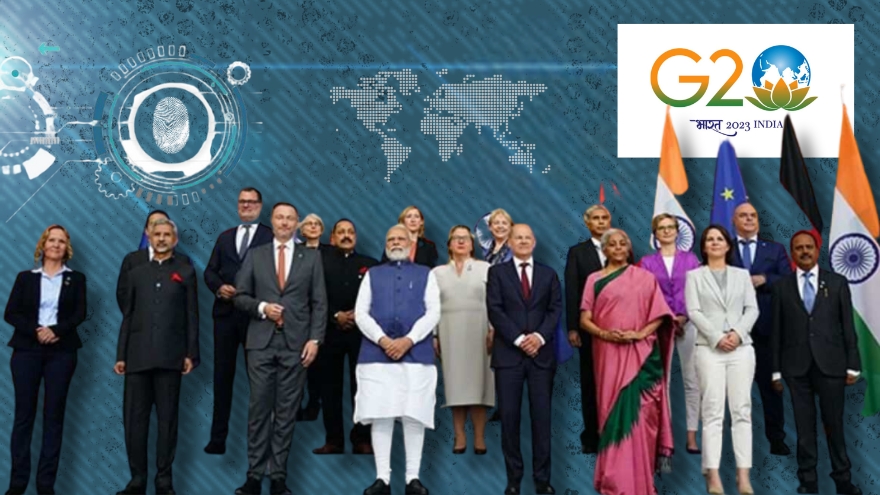The Group of 20 leaders have reached an agreement on plans to roll out digital currencies and digital IDs despite concerns that such technology could be used to usher in global totalitarianism.
Following its annual summit in India’s capital of New Delhi, the G20 outlined its vision in a 78-page document that includes details and policy recommendations.
Member nations include Argentina, Australia, Brazil, Britain, Canada, China, France, Germany, India, Indonesia, Italy, Japan, South Korea, Mexico, Russia, Saudi Arabia, South Africa, Turkey, the United States and the European Union (EU).
Ursula von der Leyen, the EU Commission President who was appointed and not elected, renewed her call for a global digital ID and cashless society, ideas she has pushed since at least 2021.
She also called for an international regulatory body for artificial intelligence (AI) and digital ID systems similar to the passports proposed during the COVID-19 pandemic, which carried identifying information along with medical data including a person’s vaccine status, negative tests, and whether or not they have antibodies.
“Many of you are familiar with the COVID-19 digital certificate. The EU developed it for itself. The model was so functional and so trusted that 51 countries on four continents adopted it for free,” von der Leyen said.
“The future is digital. I passed two messages to the G20. We should establish a framework for safe, responsible AI, with a similar body as the IPCC for climate. Digital public infrastructures are an accelerator of growth. They must be trusted, interoperable & open to all,” she added.
The EU is currently working toward the introduction of a digital identity app that would aggregate people’s personal information, including passports, medical history, and driver’s licenses.
According to the G20 proposal, digital IDs can “further financial inclusion, especially in low- and middle-income countries, where insufficient documentation is often a barrier to account ownership.”
Officials are pitching the new technology as a centralized platform that will provide greater efficiency, reduced costs, and increased safety.
Critics, however, warn that so much personal information compiled in a centralized place could be used malevolently to suppress human freedom.
“Can you imagine this data falling into the hands of bad actors?” Nigel Farage, former Leader of the UK’s Brexit Party, said during a recent interview.
“I speak to somebody who’s recently been de-banked as a result of his political opinions,” he cautioned. “And this is happening in America too, as you well know, to lots of people. If we’re not careful, we head towards a Chinese-style social credit system where unless you go along with the views of a day, you become a non-person.”
Farage added, “I cannot think of a more dangerous initiative than this.”
Concerns over digital IDs have been raised for years.
Brett Solomon, writing for Wired, warned that digital ID “poses one of the gravest risks to human rights of any technology that we have encountered.”
